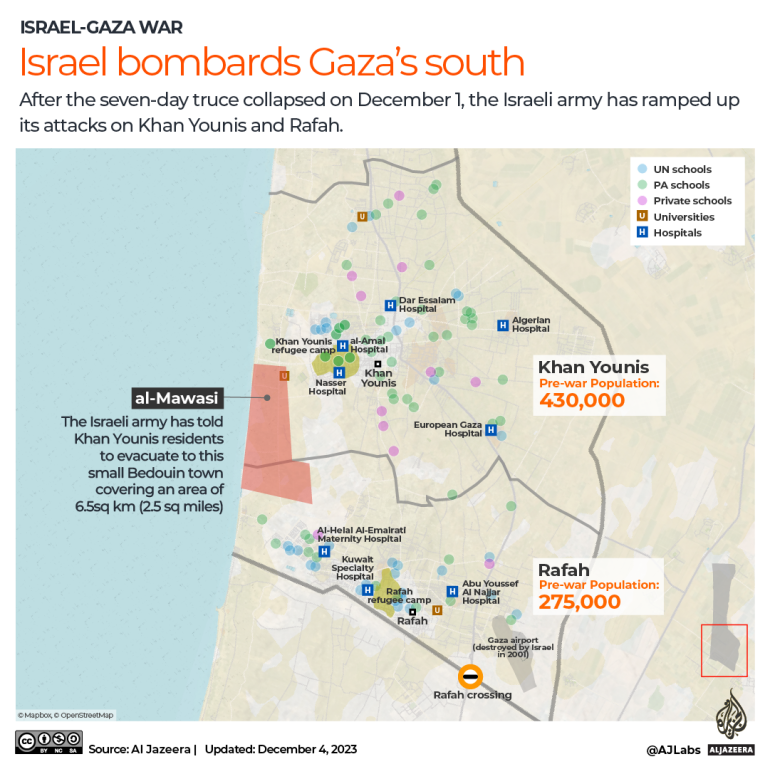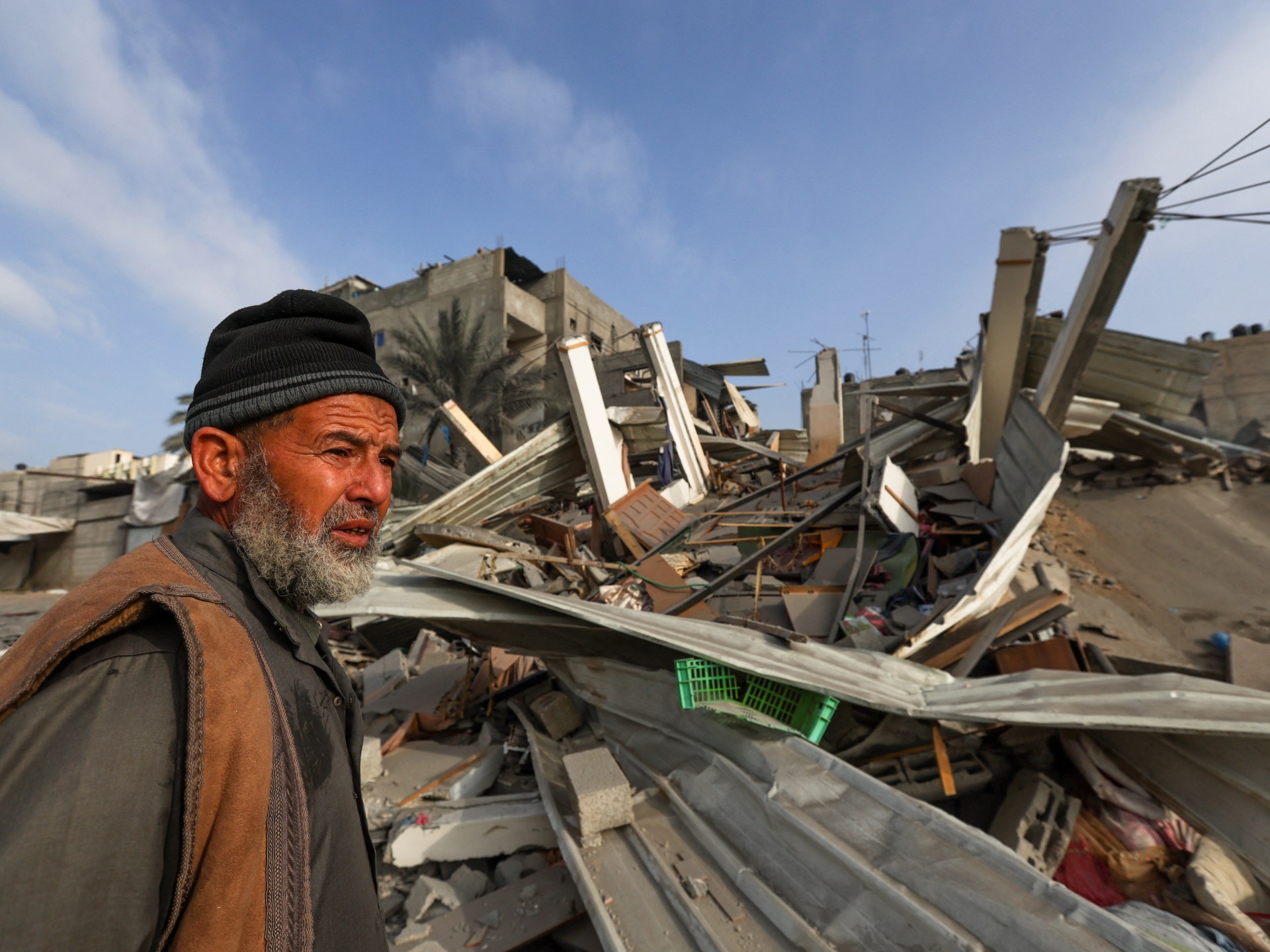Since the one-week truce in Gaza ended on December 1, Israel has expanded its offensive to the besieged enclave’s south, where more than a million Palestinians sought shelter following Israeli bombardment in the north.
Israel has intensified attacks on Khan Younis declaring it a “dangerous combat zone”. Gaza’s second-largest city, which was dubbed a safe zone in the initial days of the war, is now a scene of devastation and suffering. Fear of Israeli strikes haunts people while lack of food and other basic amenities have driven people to misery amid bloody street fighting.
Meanwhile, Israel continues to attack northern Gaza, raiding the Kamal Adwan Hospital on Tuesday.
Here is what is happening in Khan Younis and the rest of southern Gaza.
What is happening in Khan Younis?
Two people were killed in Khan Younis in Israeli artillery shelling on Tuesday.
A bicycle was reportedly hit on Sunday in the centre of Khan Younis, killing two Palestinian children who were riding it, according to the UN humanitarian agency OCHA.
The city has been hit by air strikes and fire belts, causing casualties and injuries. Injured Palestinians were largely taken to the Nasser and European hospitals in the city, the Palestinian news agency Wafa reported.
Israel’s Defence Minister Yoav Gallant pushed back against international calls on Monday to wrap up the country’s military offensive in the Gaza Strip, saying the current phase of the operation against the Hamas group will “take time”.
How many people fled to Khan Younis?
Over one million Palestinians have been displaced from northern Gaza since October 13, when the Israeli military ordered people to evacuate to the south on a 24-hour notice.
More than 215,000 displaced Palestinians took shelter in dozens of UNRWA shelters in Khan Younis.
However, on December 3, Israel ordered an immediate evacuation of about 20 percent of the city, which was home to more than 400,000 people before the war erupted on October 7. The area marked for evacuation included 21 shelters and 50,000 internally displaced people, mostly from the north of Gaza, according to OCHA.
Several of those who were displaced to Khan Younis had to further move to Rafah city near the Egyptian border, some even moving for the fourth time since the outbreak of violence.
Now, thousands of displaced people from Khan Younis itself, as well as the north of Gaza are squeezed in the dangerously overcrowded al-Fukhari, south of Khan Younis. Hospitals and schools in the area are filled beyond capacity, as the Israeli army continues to order Palestinians to move further south.
Shrinking space and the rising danger of health issues and infections due to the lack of water have been an increasing cause for concern.
Attacks on southern Gaza
Thousands of Palestinians have been forced to flee further to the south towards the city of Rafah. Twenty Palestinians, including seven children and at least five women, were killed in Israeli attacks on Rafah on Tuesday. There are reports of more air attacks.
Martin Griffiths, the UN humanitarian affairs coordinator, says his organisation was hopeful and has been informed that once the war moved to southern Gaza, there would be a different, more precise approach to the fighting.
“[But] what’s happened is the assault on southern Gaza has been no less than the north. It’s raging through Khan Younis at the moment, and it is threatening Rafah. The compression of the population is greater. We cannot be sure of any of our points of operation to be safe,” he told Al Jazeera.
Central Gaza has not been spared either as an Israeli air strike overnight flattened a residential building where some 80 people were staying in the Maghazi refugee camp, killing at least 22 on Monday.
Israeli air strikes and the brutal ground invasion have killed at least 18,205 Palestinians and wounded 49,645 others. More than 80 percent of the casualty figures are civilians.
Do southern Gaza residents have access to food?
UN Special Rapporteur on the right to food Michael Fakhri says “every single Palestinian in Gaza is going hungry” and warns world is witnessing a “genocide”.
UN officials and rights groups have been urging Israel to speed up the deployment of humanitarian aid to Gaza by opening the southern Karem Abu Salem (Karem Shalom) border with Israel.
Israel announced that it would conduct security screenings of the aid at Karem Abu Salem beginning on Tuesday. The first batch of humanitarian trucks were inspected and on their way to the Rafah border.
Palestinians who are staying in the north are going hungry as hardly any aid delivery has made its way to the area devastated by Israel’s relentless bombardments.
Check out our Latest News and Follow us at Facebook
Original Source

